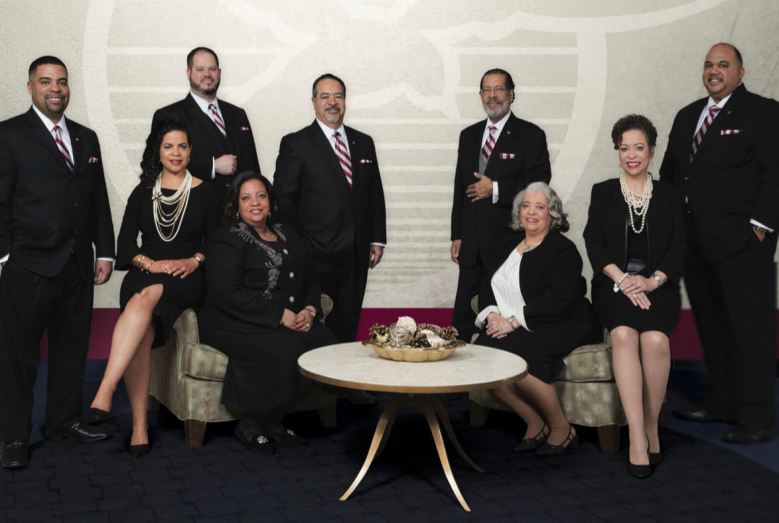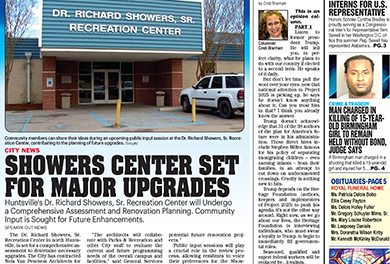By Megan Sayles
AFRO Business Writer
msayles@afro.com
What was once a small funeral parlor inside of a Baltimore home is now a family-owned funeral business empire with several branches spanning the Baltimore-Washington metropolitan area.
In 1957, William Carrington March and his wife, Julia Roberta March, took a chance and opened March Funeral Homes on the main floor of their three-story row home. In their first year, the couple did just two funerals. Today, the business, run by the Marches’ four children, serves more than 3,000 families annually across its facilities.
“My parents grew up during the Depression and the war, never able to go to college. The whole basis for them going into business was to be able to provide an education to their children,” said Victor March, CEO and president of March Funeral Homes. “We grew up in the business, and we literally lived overtop the funeral home.”
Victor March remembered having responsibilities in the family business as young as age 8—whether it was vacuuming floors, scrubbing marble steps or cleaning restrooms.
Despite all of the children being raised in the business, Victor March said his parents never pushed them to choose it for their careers. In fact, his father encouraged him to pursue a profession in accounting because the field had a dearth of African Americans.
Victor March did just that and worked as a certified public accountant (CPA) for Coopers and Lybrand, one of the oldest accounting firms in the U.S. However, he always intended to return to the family business.
In 1979, after moving into its new East Baltimore home on North Avenue, March Funeral Homes required full-time financial oversight. Victor March stepped in to take on the role. Nine years later, William Carrington March and Julia Roberta March conferred the business to their four children, Erich March, Victor March, Annete March-Grier and Cynthia March-Malloy.
“My dad, at the age of 65, decided that it was time for him to retire and turn the full operation over to his children, which is very rare. Particularly in the funeral profession, most times the owner or operator dies in the saddle,” said Victor March. “My dad educated his children, and he trusted all of their decisions. We were very much in tune with everything that went on.”
March Funeral Homes steadily expanded its operations over the years, opening more branches in Baltimore City, Baltimore County and Virginia and acquiring Marshall’s Funeral Homes in Prince George’s County and Washington, D.C. to create Marshall-March Funeral Homes.
In 2012, the company decided it wanted to celebrate life outside of death and opened its first March Life Tribute Center in Laurel, Md. The facility includes a fellowship hall and catering services for special occasions, like weddings, anniversaries and baptisms rather than just funeral services. It also accommodates a mix of religions from Christian to Buddhist and Hindu.
The second March Life Tribute Center opened in Randallstown, Md., in 2016.
“Why just celebrate the end of one’s life? Culturally, we celebrate all of these moments of a person’s life, and we do it around food,” said Victor March. “I felt that the center was something we needed to go to the next level and to celebrate people throughout their lives.”
During the COVID-19 pandemic, the March family was instrumental in persuading the federal government to include funeral workers in the early rounds of vaccines.
“It got to a point where our funeral home and many other funeral homes were overwhelmed by the sheer number of cases that we were asked to handle on the cemetery and funeral home side,” said Erich March, vice president of March Funeral Homes.
He himself caught COVID-19 twice, and two of his employees died from the disease.
“I lost two, and I had a couple employees hospitalized for months at a time. It affected me because I was concerned for my workforce,” said Erich March. “I was concerned with the fact that we were overwhelmed. Like so many other funeral homes, we ran out of places to store human remains and had to have emergency refrigeration.”
“Like so many other funeral homes, we ran out of places to store human remains and had to have emergency refrigeration.”
Erich march
Erich March hopes that the world does not undergo another pandemic but thinks it’s likely to happen again in the future.
Currently, the March family is in the process of developing a succession plan for the third generation. Victor March’s wish for the business is continued growth.
“We can’t stay still. We have to have a vision that sees where things are going not only in the funeral profession but with consumer demands,” said Victor March. “We have to be proactive.”
Megan Sayles is a Report For America corps member.
#celebrationoflife #Baltimore #funeralhomes
Related Articles:
The post AFRO spotlight on Black excellence: March Funeral Homes upholds legacy of top-notch service and care appeared first on AFRO American Newspapers .











